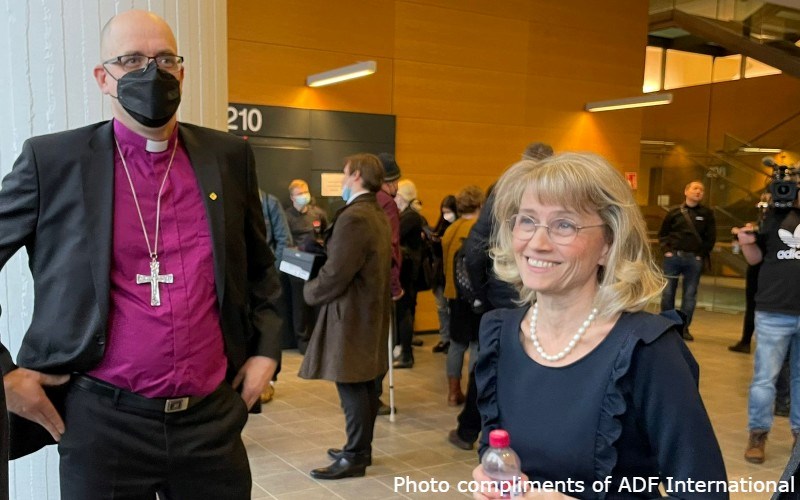Päivi Räsänen, a former Minister of the Interior, was prosecuted for “hate speech” over homosexuality and marriage after an unwelcomed social media post and radio debate got her in trouble with authorities in the Nordic nation of 5.5 million.
Also facing charges was a bishop, Juhana Pohjola, who was put on trial for publishing a religious pamphlet, 17 years earlier, that was written by Räsänen.
The high-profile trial against both of them concluded Wednesday with a unanimous ruling in their favor. “It is not for the district court to interpret biblical concepts,” the Helsinki District Court ruled.
Räsänen belongs to the liberal Evangelical Lutheran Church of Finland, as do approximately 70% of Finland, where church attendance is in the single digits. But she is the exception to the nation's post-Christian landscape and so she shamed church leaders in 2019 when they sponsored a homosexual-themed event.
Paul Coleman, an attorney with ADF International, tells AFN the Finnish court system allows the Prosecutor General to appeal the acquittal to a higher court.

“Even though we won, and the judge has ordered that the legal cost be paid,” he advises, “we could yet see a letter coming from the courts indicating that the prosecutor is appealing the decision to the court of appeals."
The attorney predicts an appeal is coming because the case became “politicized” and because the prosecution was “hostile” to freedom of speech involving religious beliefs.
That appeal would come after the Prosecutor General pursued the case even after police investigated Räsänen and recommended dropping the case. The charges also brought international scrutiny from church denominations around the world, from U.S. senators, and from Great Britain’s parliament.
The prosecution itself literally put orthodox Christianity on trial: In closing arguments, the word “sin” was described as “harmful” and thus the defendants deserved to be fined and punished.
"I am so grateful the court recognized the threat to free speech and ruled in our favor," Räsänen said after the ruling. "I feel a weight has been lifted off my shoulders after being acquitted."







